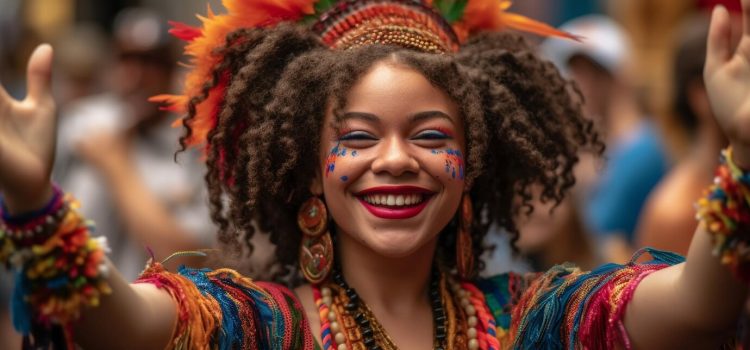
Introduction
Cultural festivals have always been an important part of human life. They showcase a community’s heritage, beliefs, and values in vibrant ways. These events celebrate traditions and bring people from different backgrounds together. They highlight the beauty of diversity and the shared experiences that unite us. In this article, we will look at cultural festivals from around the world, their meaning, and how they honor our global diversity.
The Essence of Cultural Festivals

Cultural festivals are events where communities celebrate their history, art, music, dance, and traditions. They showcase a group’s identity and may be religious, seasonal, or tied to important historical events. These festivals honor the past while helping future generations understand and preserve their heritage.
Festivals often include music, parades, traditional food, clothing, and meaningful rituals. They let people show pride in their culture while inviting others to learn about it. This sharing promotes global understanding and respect for different traditions.
Celebrating Diversity through Festivals
Diversity is one of the world’s greatest strengths, and cultural festivals highlight this beautifully. Events like Diwali in India, Carnival in Brazil, and Chinese New Year showcase the unique traditions of different cultures. These celebrations are vibrant displays of human creativity, history, and spirit. They show how communities honor life, family, and traditions in their own ways.
By celebrating diversity, these festivals help people from all backgrounds appreciate the richness of global cultures. They promote inclusion and understanding, reminding us that, despite our differences, we share many common values as humans.
Popular Cultural Festivals Around the World
1. Diwali (India)

Diwali, or the Festival of Lights, is one of India’s most celebrated festivals and is popular among Indian communities worldwide. It symbolizes the victory of light over darkness and good over evil. During Diwali, people light oil lamps (diyas), set off fireworks, enjoy festive meals, and exchange gifts. While it has religious origins, Diwali has grown into a national celebration of unity and happiness
2. Carnival (Brazil)
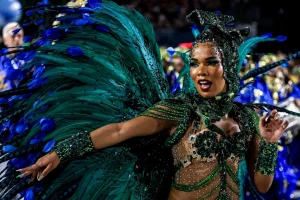
The Carnival of Brazil is the biggest and most famous festival in the world. Held in February or March, just before Lent, it transforms the streets of Rio de Janeiro with samba parades, colorful costumes, and lively music. While it has religious roots, the Carnival is also a major cultural event that brings together all parts of Brazilian society and draws millions of tourists every year.
3. Chinese New Year (China and Worldwide)
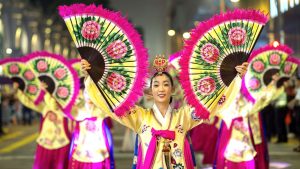
Chinese New Year, or the Spring Festival, is the most important traditional celebration in China. It marks the start of the lunar new year with dragon dances, fireworks, feasts, and family gatherings. The festival symbolizes good fortune, renewal, and hopes for prosperity in the coming year. Its celebrations are also widespread in countries with large Chinese communities.
4. Oktoberfest (Germany)

Oktoberfest, held every year in Munich, Germany, is a celebration of beer, food, music, and Bavarian culture. Visitors from around the globe come to enjoy traditional beers, hearty meals, and festive clothing. Originally started as a wedding celebration, Oktoberfest has grown into a symbol of German tradition and warm hospitality.
5. Mardi Gras (USA, New Orleans)
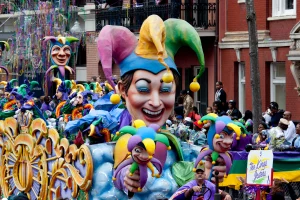
Mardi Gras, or Fat Tuesday, is a lively festival celebrated in New Orleans and other places around the world. It marks the last day of Carnival before Lent and is known for its grand parades, masks, and lively street parties. Mardi Gras is a time for fun and indulgence, with colorful costumes, energetic music, and traditional foods.
Cultural Festivals: A Global Perspective
Cultural festivals bring people together from all over the world to celebrate and learn about each other’s traditions. Events like Oktoberfest and Diwali welcome visitors to enjoy food, music, and customs. These festivals help break down cultural barriers and foster understanding.
When people join these celebrations, they get a chance to learn about different values and traditions. Cultural festivals show us that, despite our differences, we are all connected by our shared humanity.
The Economic Impact of Cultural Festivals

Cultural festivals are not only about celebrating traditions, but they also play a big role in the global economy. Festivals like Brazil’s Carnival and Germany’s Oktoberfest attract millions of tourists, helping local businesses like travel, hospitality, and entertainment. These events bring in a lot of money and create many jobs, supporting vendors, performers, and artists. They also help grow the global tourism industry, making festivals an important part of economic growth.
How Cultural Festivals Foster Unity
Cultural festivals, while based on specific traditions, bring people together from different backgrounds. The shared joy and experiences during these events help build connections and foster respect between communities. Through music, dance, and food, festivals promote inclusivity and create a more united world.
Organizing and celebrating these festivals also strengthen social bonds as communities work together to make them successful. This collaboration encourages creativity and mutual appreciation among different cultures.
The Role of Music and Dance in Festivals
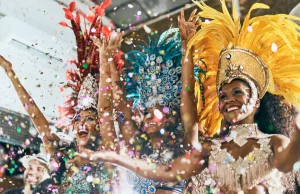
Music and dance are key parts of cultural festivals. They don’t just entertain; they also express a community’s cultural identity. Traditional dances, like flamenco in Spain, hula in Hawaii, or samba in Brazil, tell stories and reflect the heart of each culture. Music helps set the mood, with rhythms and melodies that are unique to each tradition. Through these performances, visitors can better understand the emotions and history behind the culture, making the festival experience more meaningful.
Challenges Faced by Cultural Festivals
Despite their popularity, cultural festivals face some challenges. One issue is increasing commercialization, where the focus shifts from traditions to making money. Another concern is the environmental impact, with waste and pollution from large events. It’s also hard to represent all parts of a culture in a respectful way. Organizing festivals can be financially tough and difficult to manage, especially with large crowds, making it challenging to run these events smoothly.
Future of Cultural Festivals

The future of cultural festivals looks bright, with more people from around the world likely to take part. As people seek more authentic experiences, these festivals will continue to connect them to different cultures. New technologies, like virtual reality, may let people experience festivals from a distance, making them more accessible to those who can’t attend in person. Festivals will also evolve, adding new art forms and technology focusing on environmental sustainability, ensuring they stay important and meaningful for future generations.
Comparative Table of Cultural Festivals
| Festival | Location | Main Celebration | Cultural Significance |
|---|---|---|---|
| Diwali | India, Worldwide | Lighting lamps, feasts, fireworks | Celebrates light, good triumphing over evil |
| Carnival | Brazil, Worldwide | Samba parades, music, costumes | Represents Brazilian cultural diversity and unity |
| Chinese New Year | China, Worldwide | Dragon dances, fireworks, family gatherings | Marks the beginning of the lunar year, renewal and prosperity |
| Oktoberfest | Germany, Worldwide | Beer, food, music, traditional Bavarian attire | Celebrates Bavarian culture and heritage |
| Mardi Gras | USA (New Orleans) | Parades, masks, street parties | Marks the end of Carnival season and begins Lent |
Analysis Table of Global Impact of Cultural Festivals
| Impact Area | Description |
|---|---|
| Cultural Understanding | Promotes awareness and appreciation of diverse traditions and customs. |
| Tourism and Economy | Festivals boost tourism, providing a significant economic benefit to local economies. |
| Social Unity | Brings together people from different backgrounds to celebrate common human experiences. |
| Art and Performance | Acts as a platform for showcasing local arts, music, and traditional performances. |
| Global Connection | Facilitates international exposure and collaboration, promoting cross-cultural dialogue. |
Conclusion
Cultural festivals are more than just celebrations; they showcase human creativity, identity, and diversity. These events allow people to connect with their cultural roots and invite others to join in the fun. The way festivals bring people together, promote understanding, and honor different cultures is truly special. As the world becomes more connected, cultural festivals will continue to play an important role in fostering respect and unity among all people.








